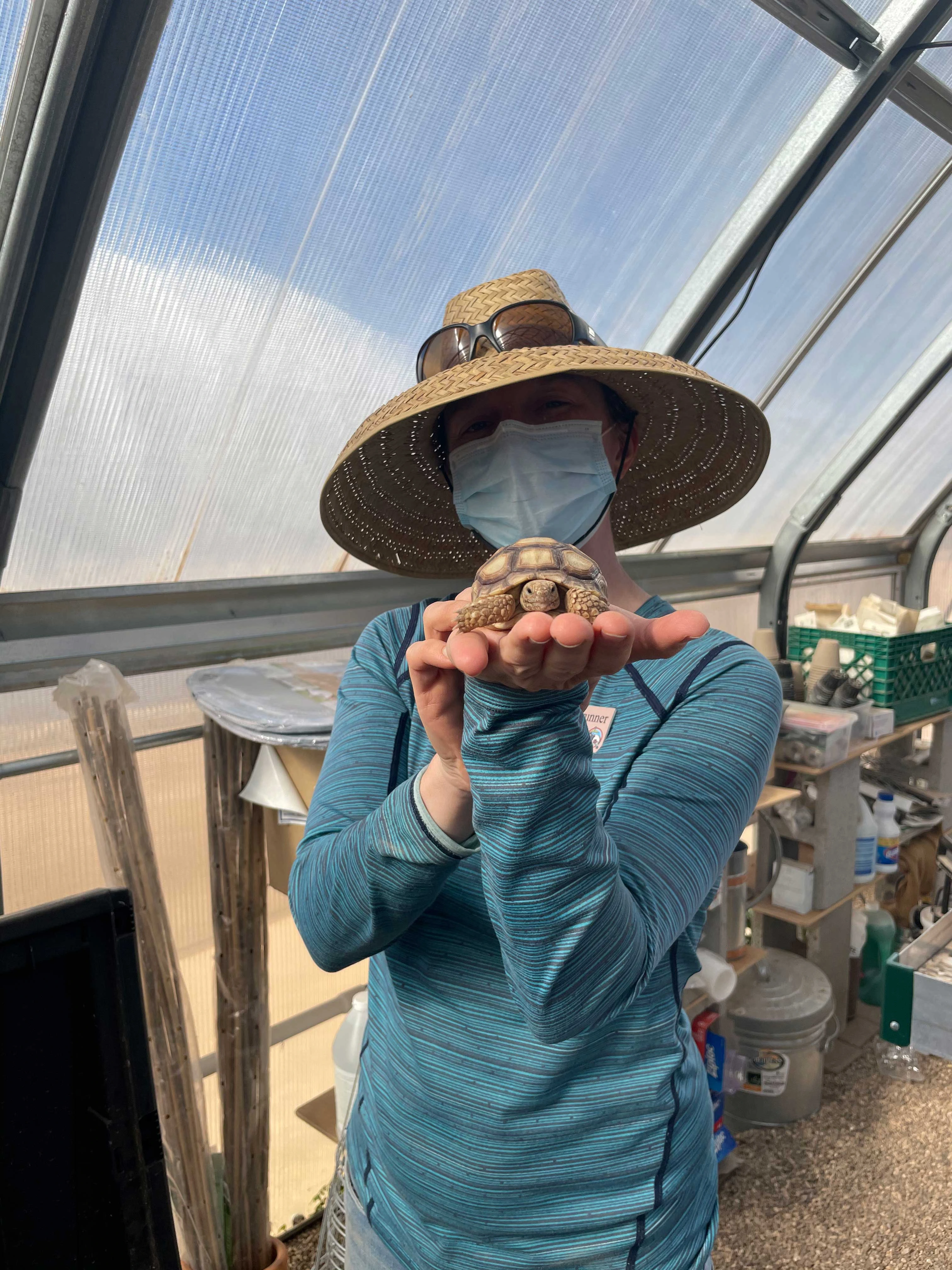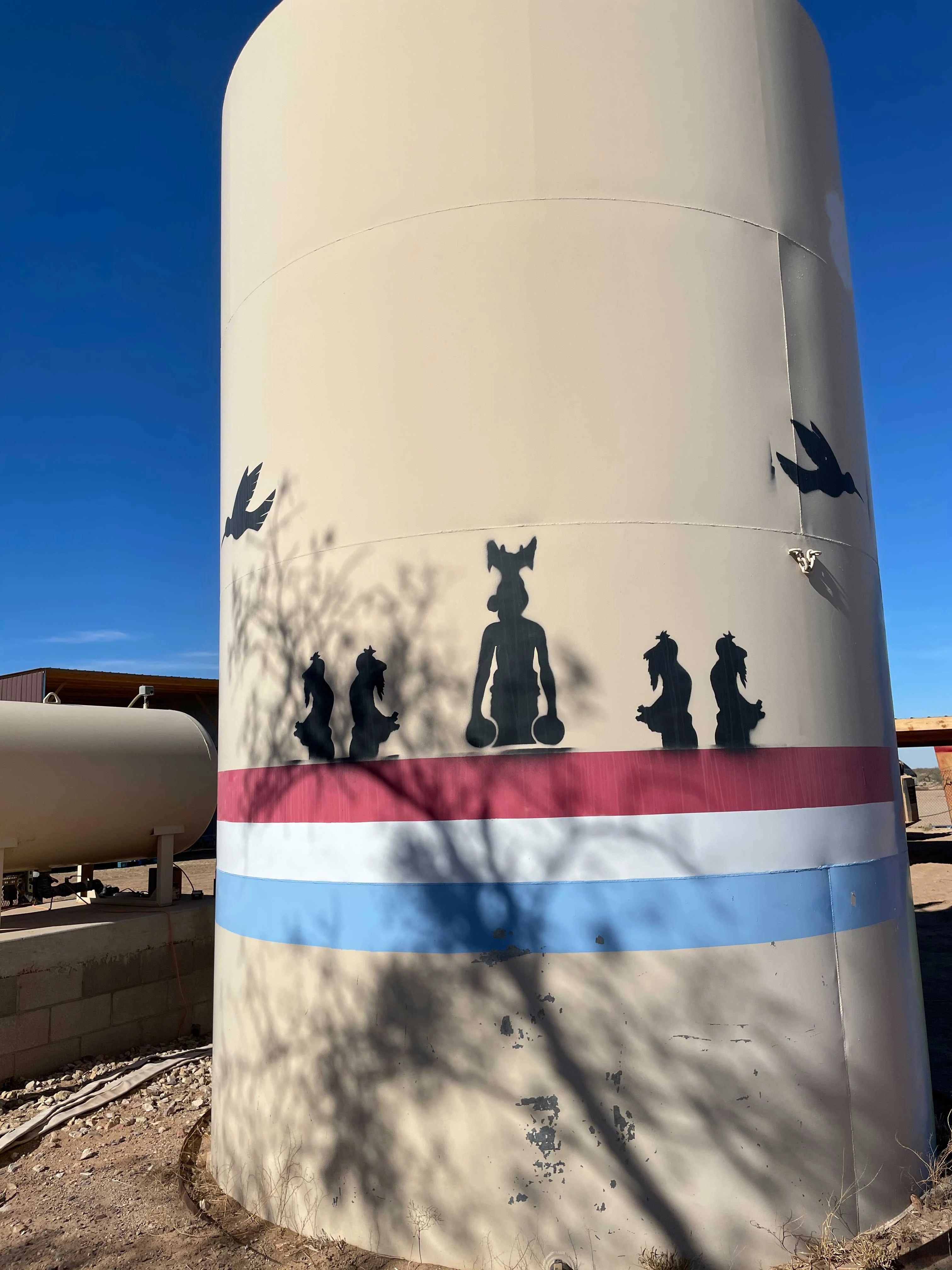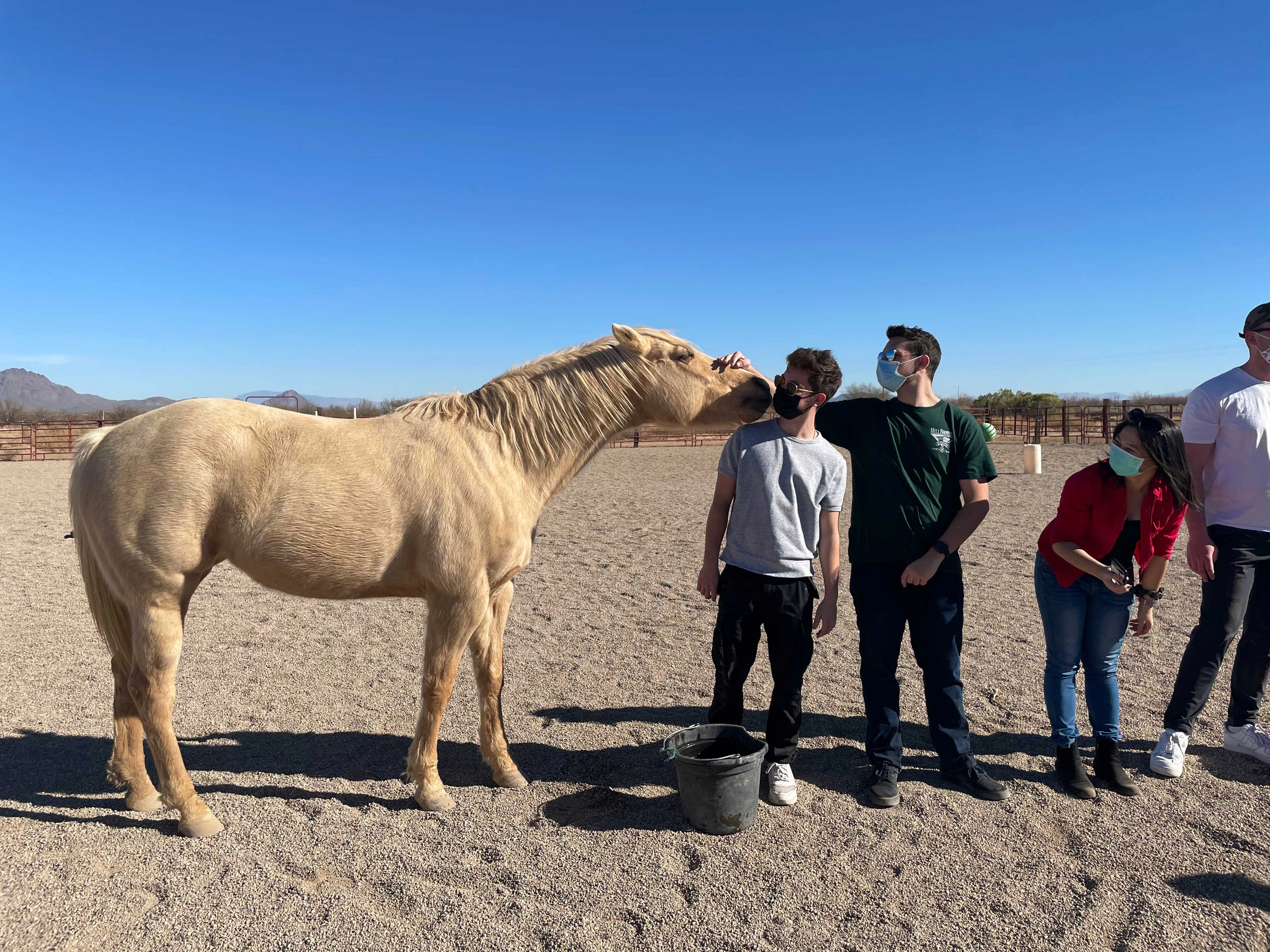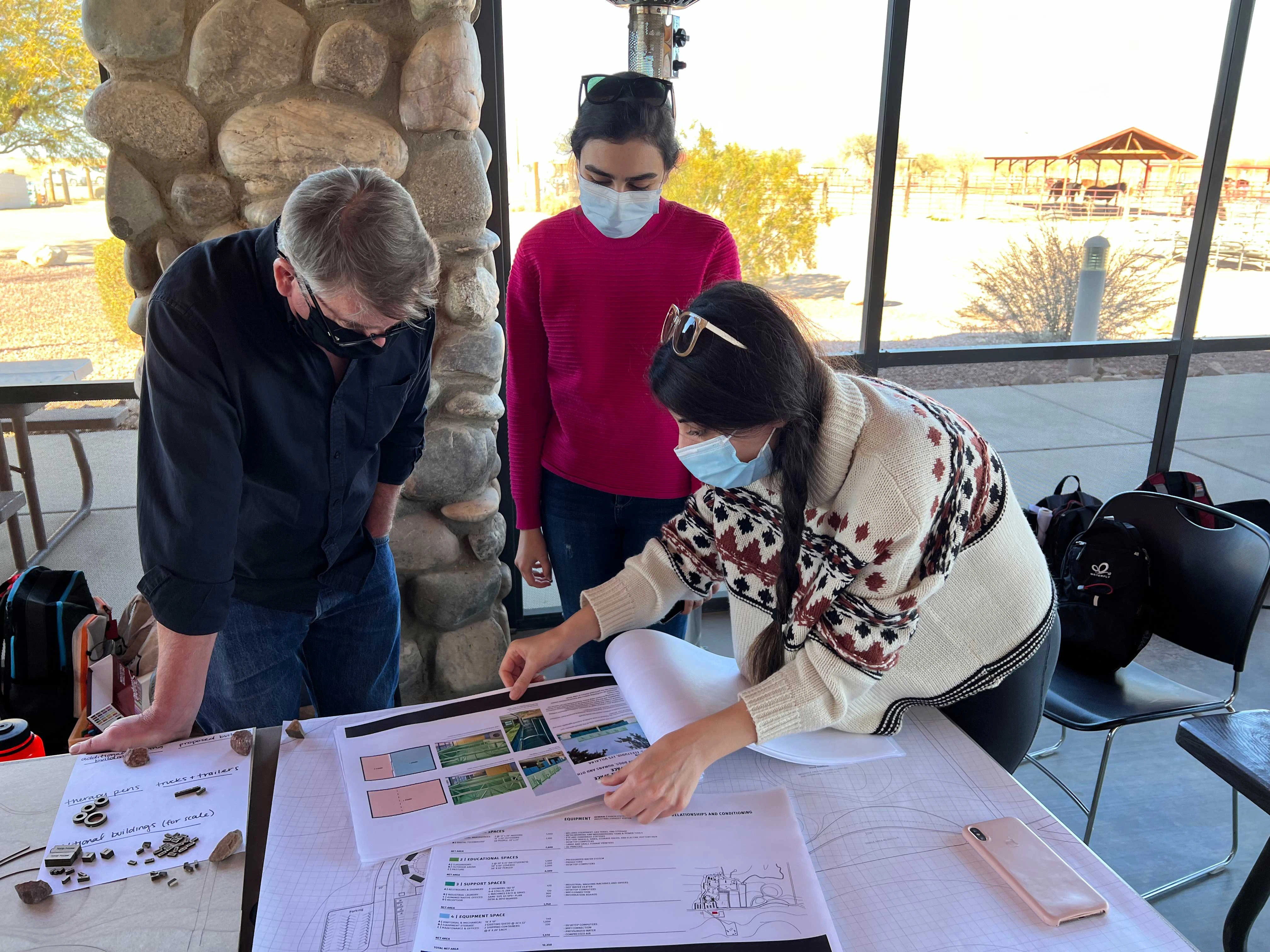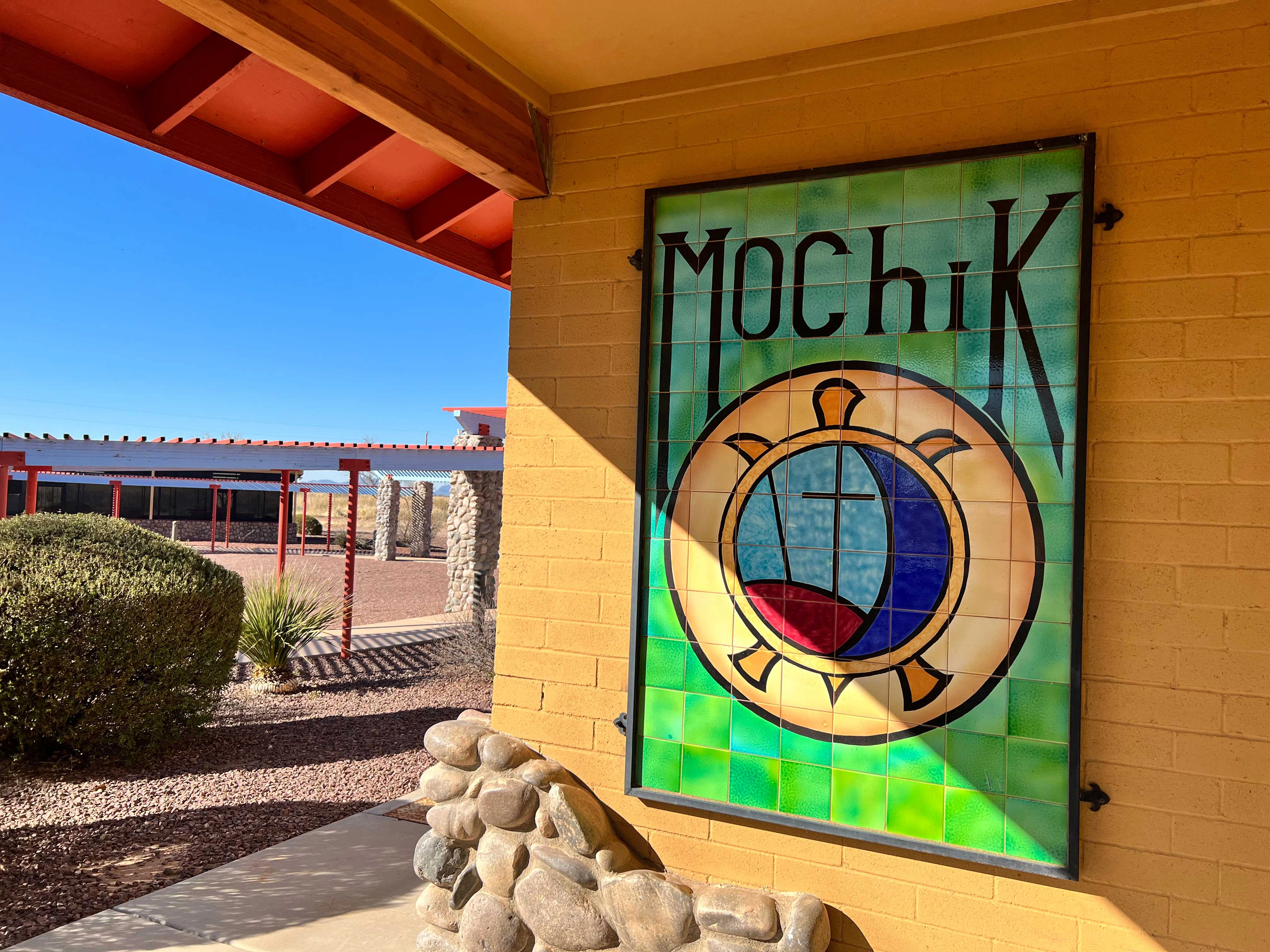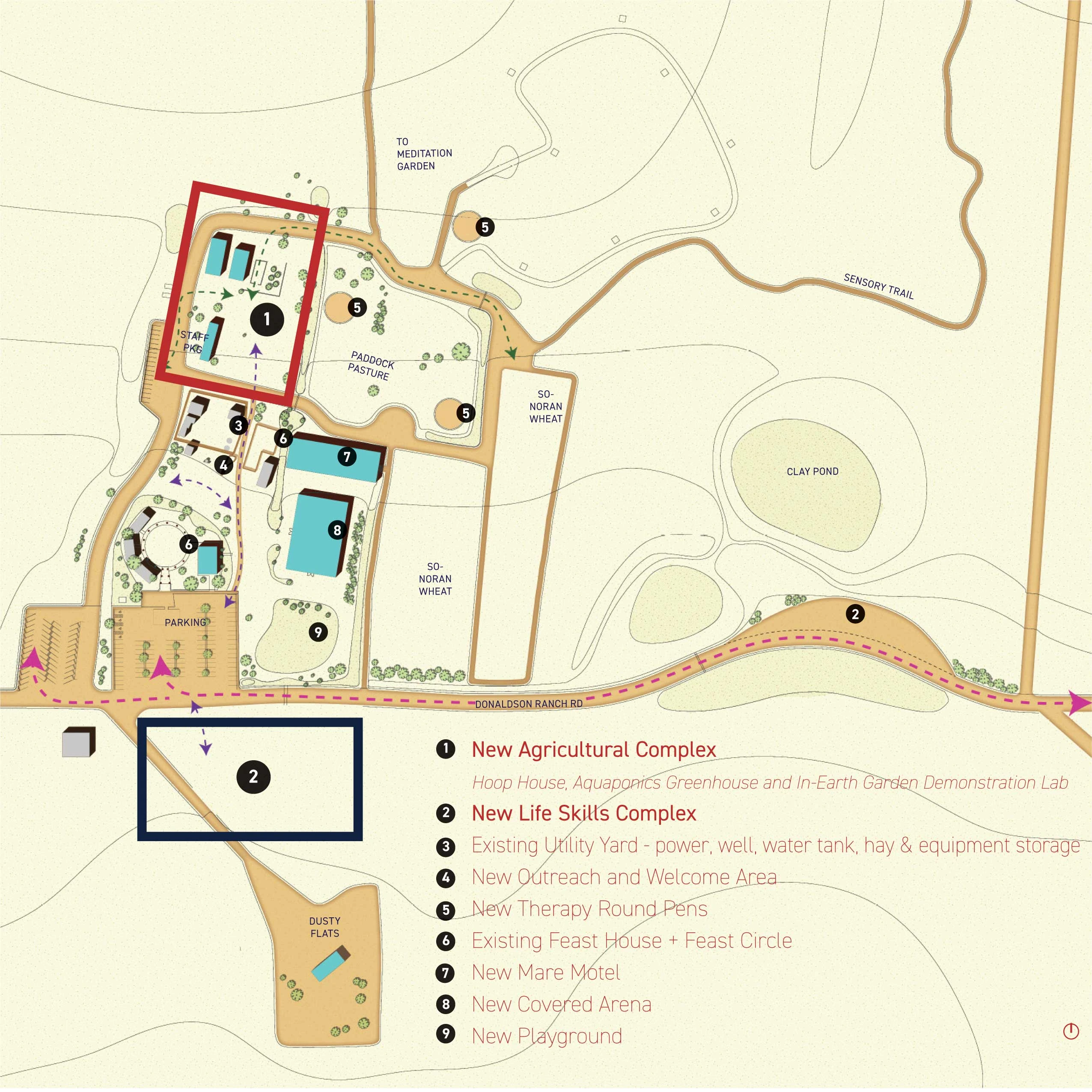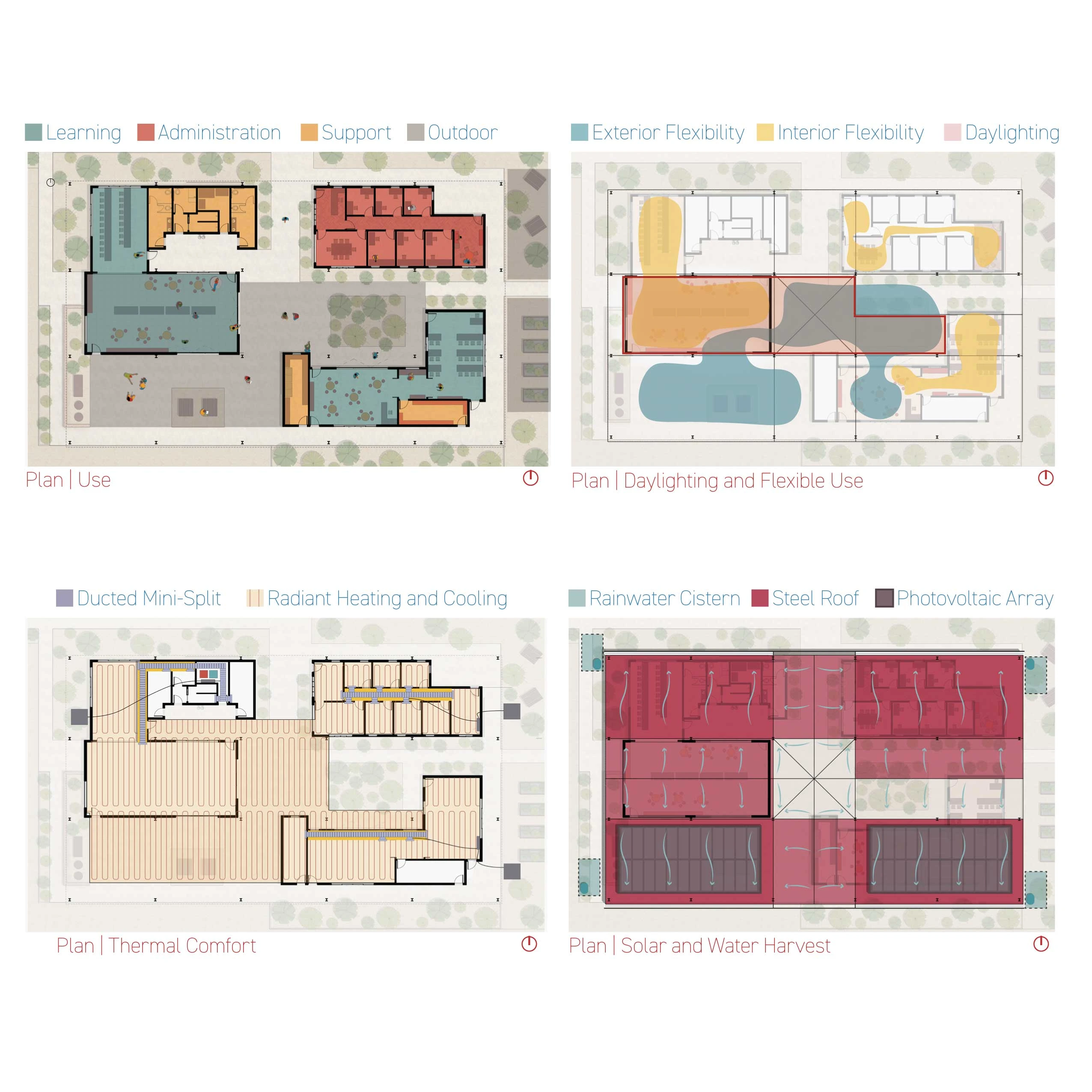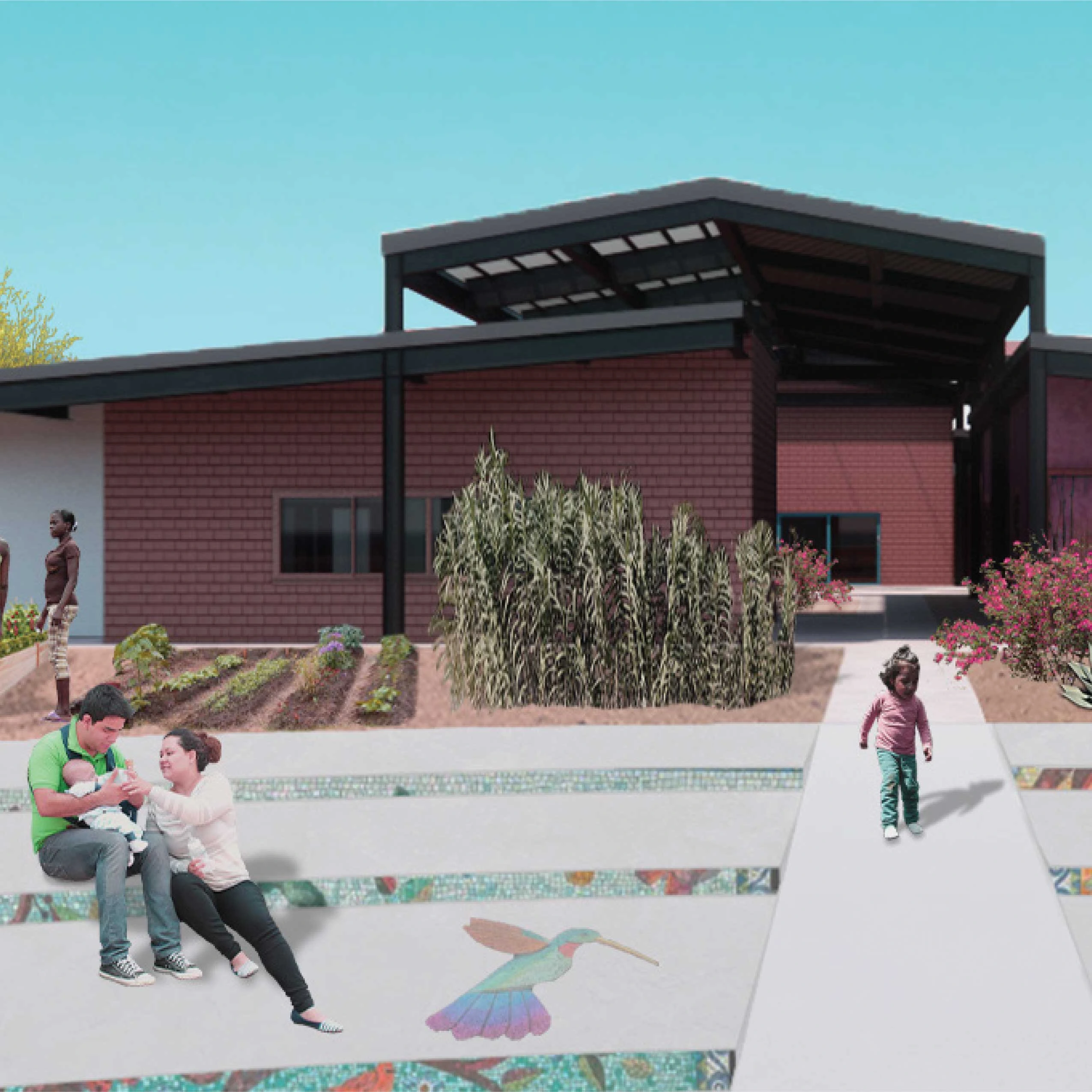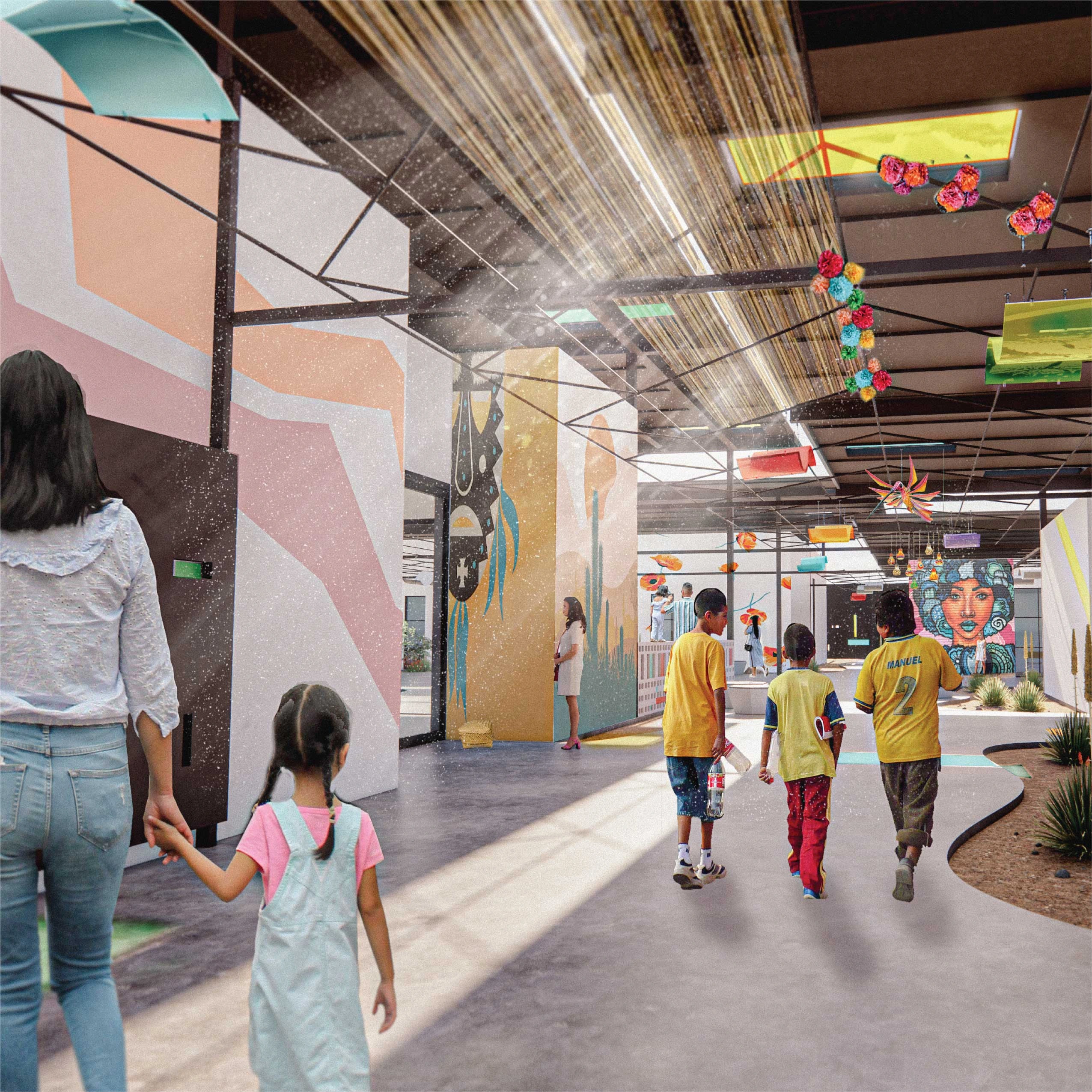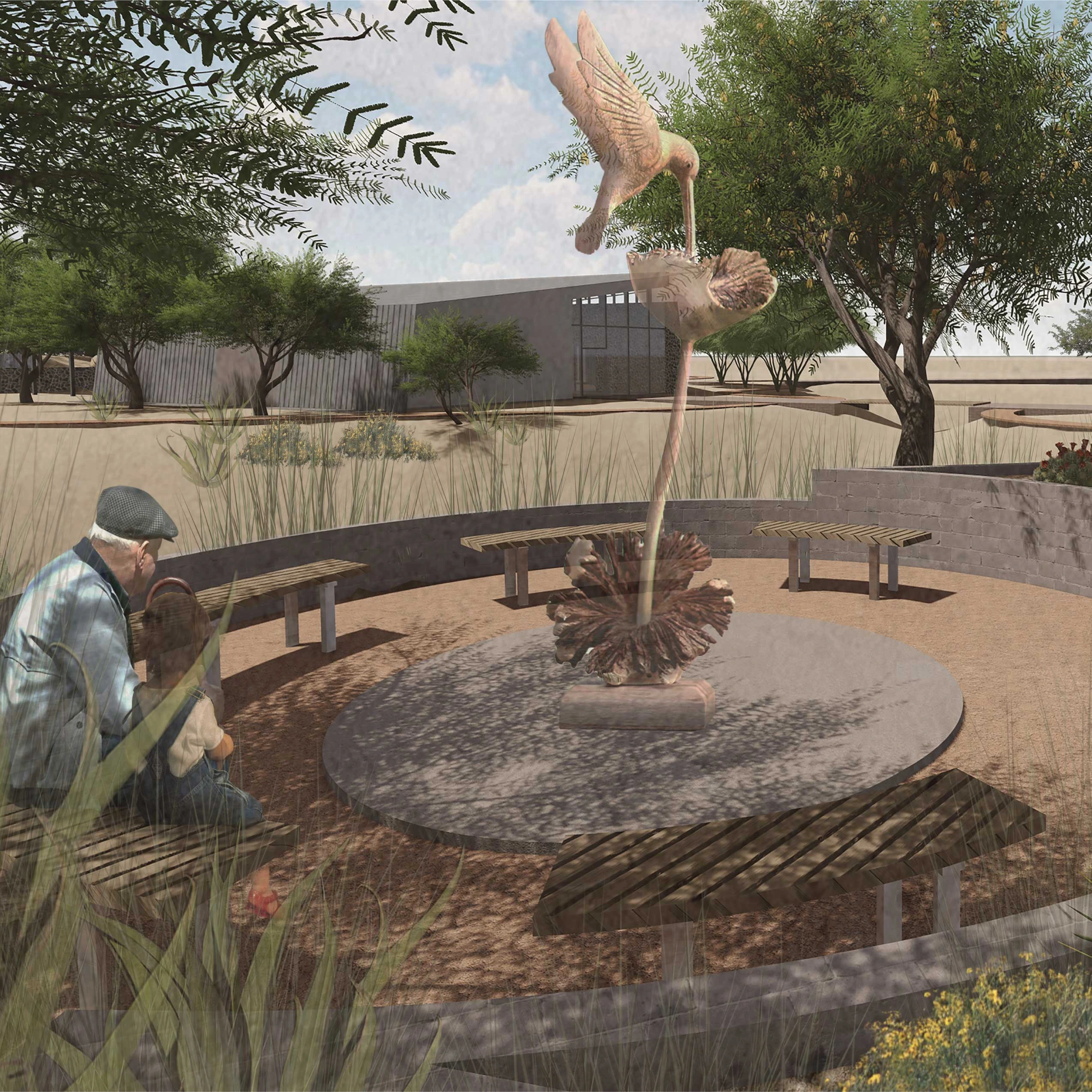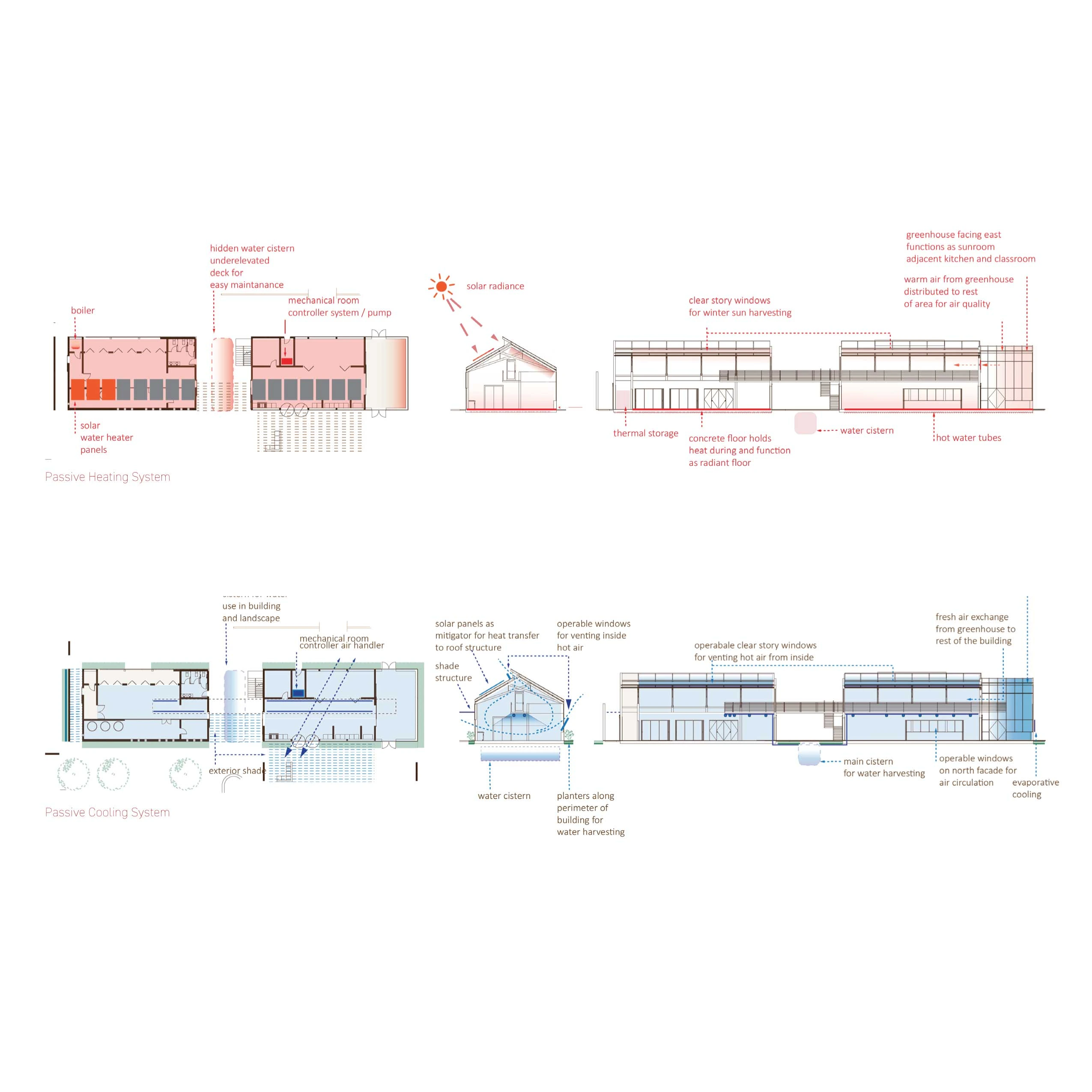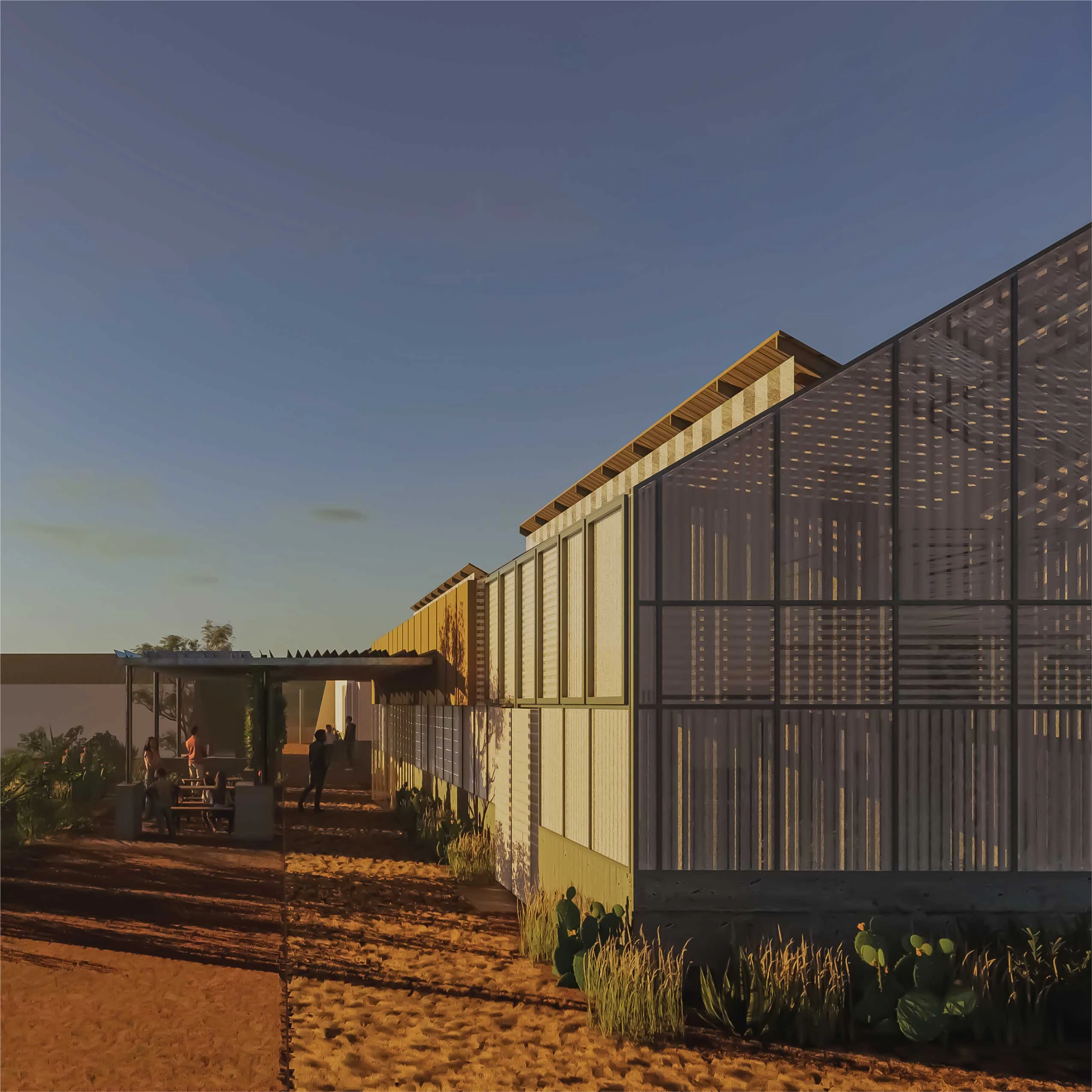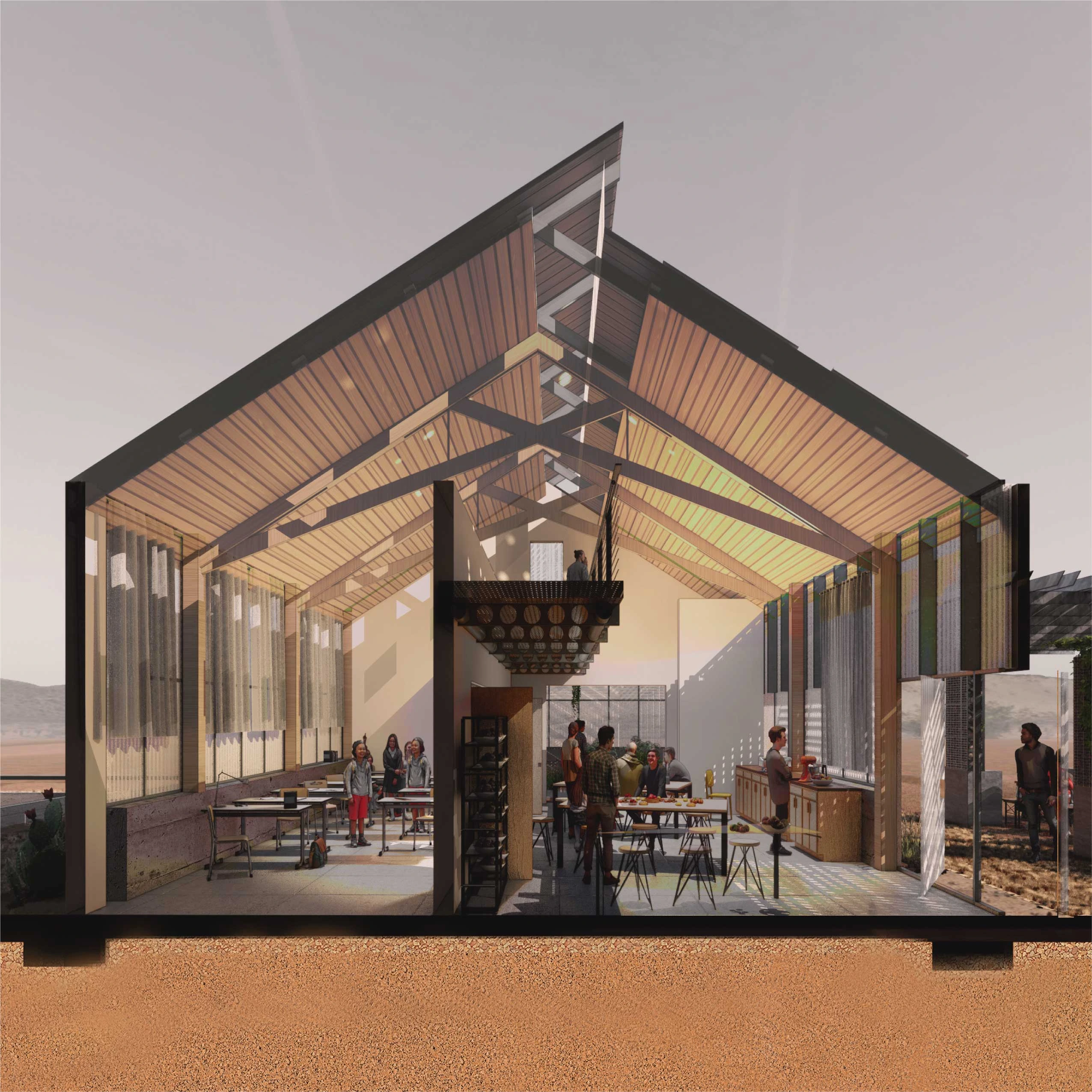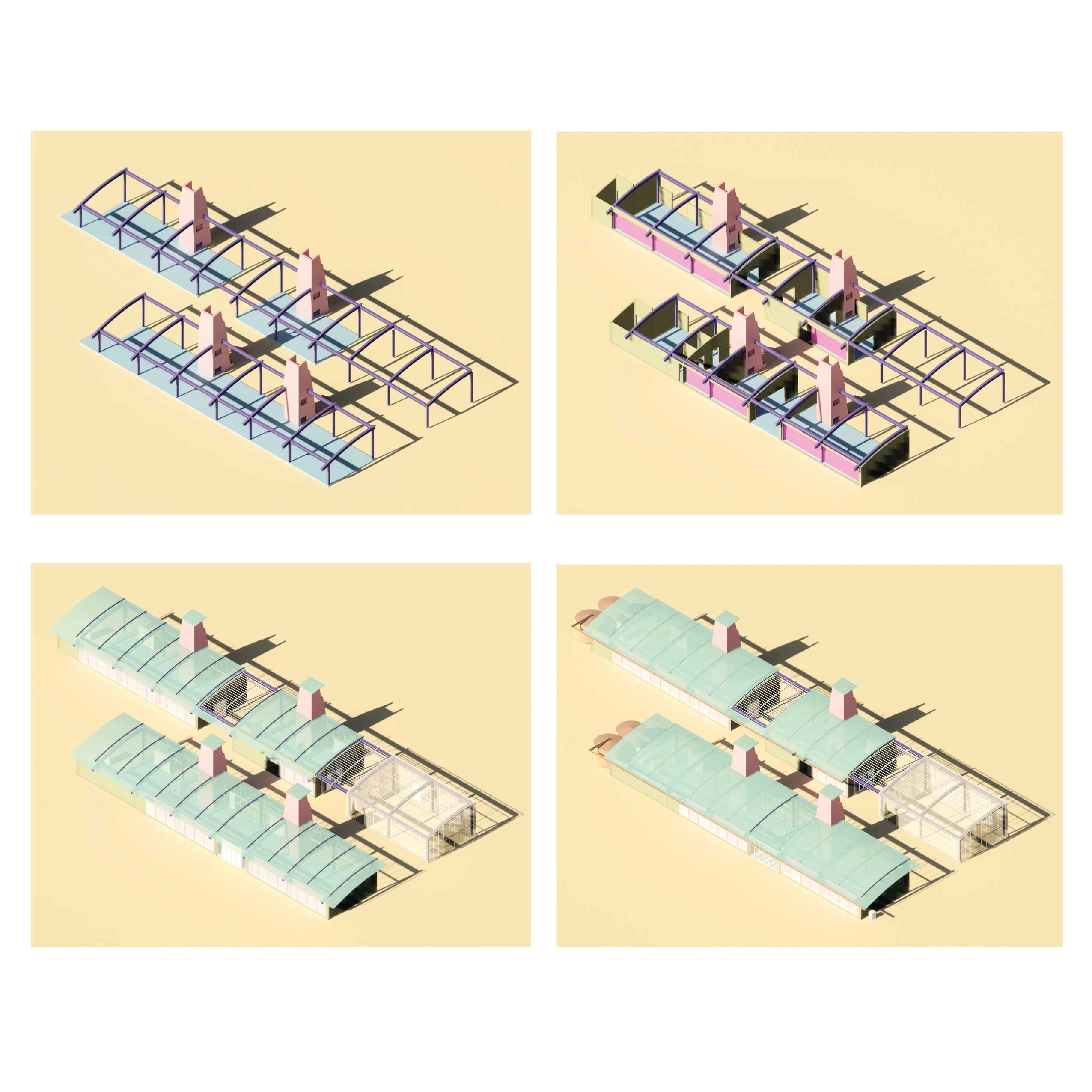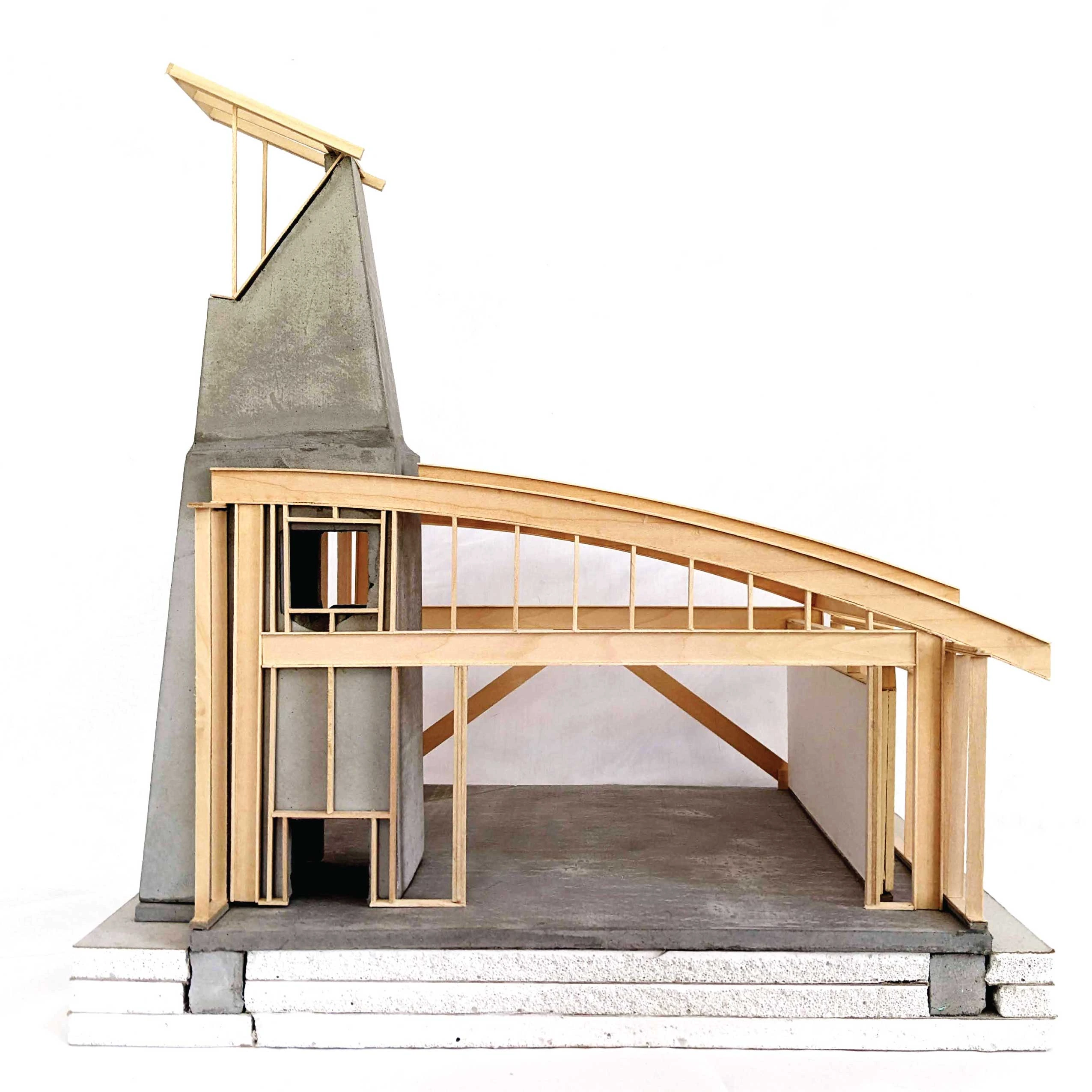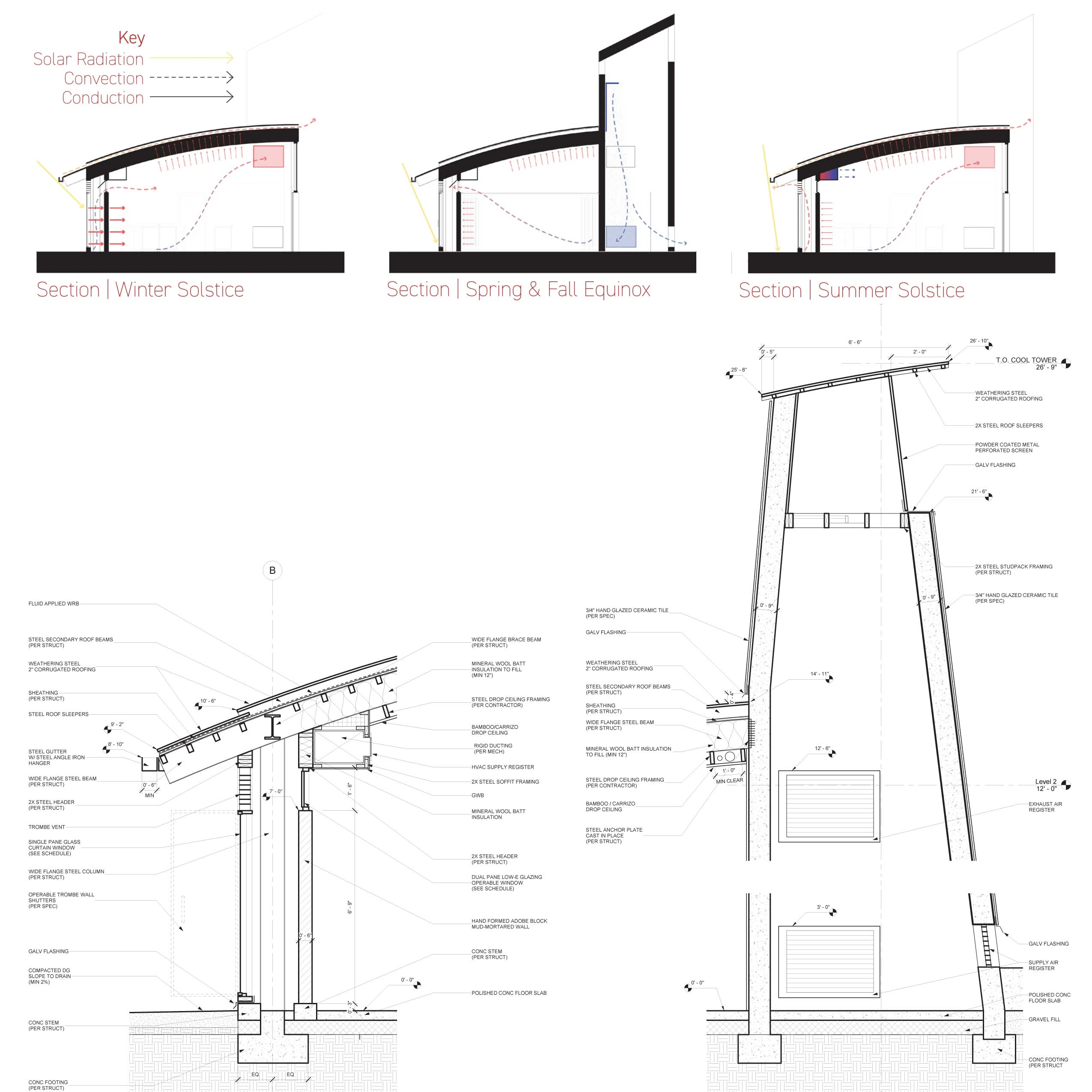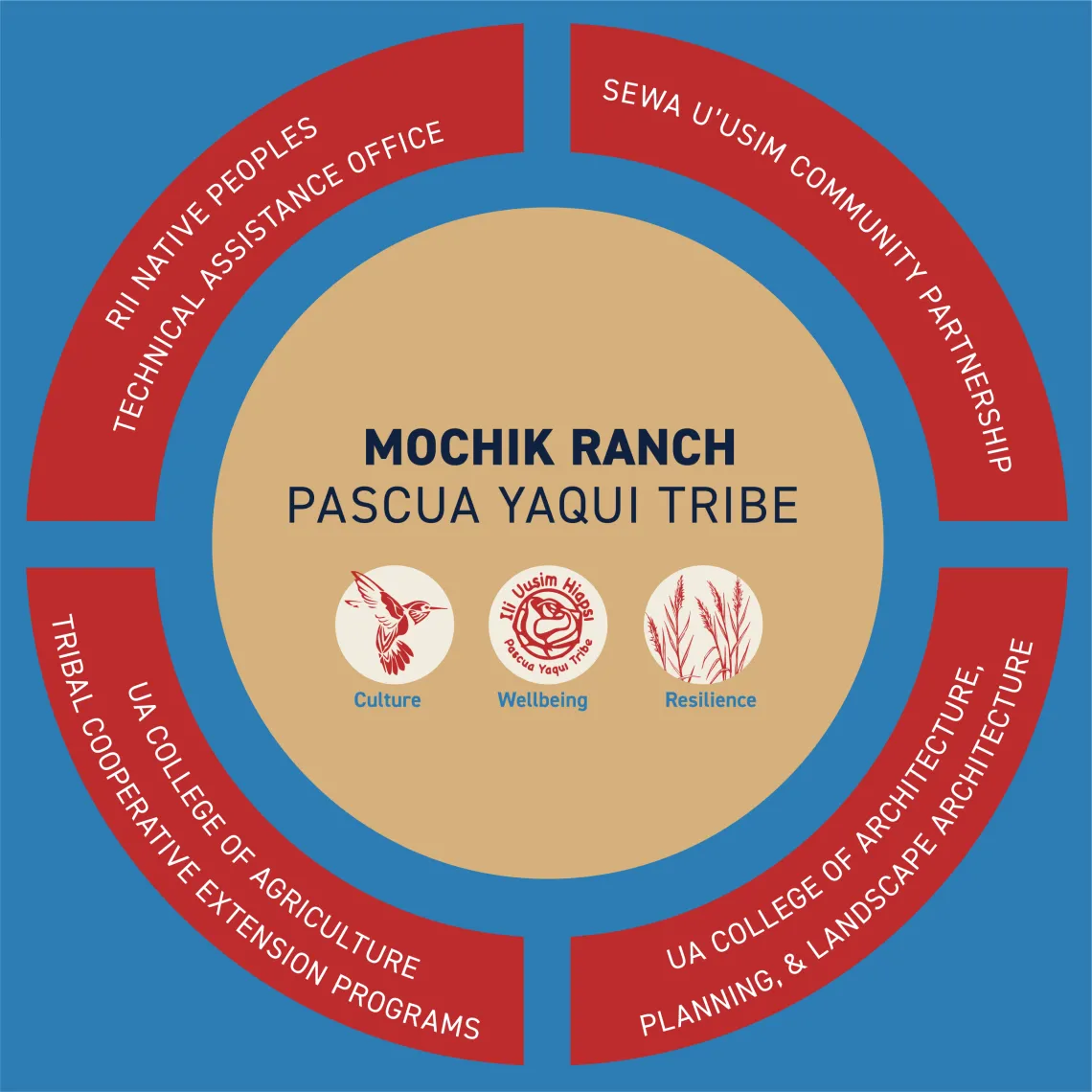
Project Team
- Claudia Nelson, Director, Native Peoples Technical Assistance Office
- Kelly Eitzen Smith, PhD., Native Peoples Technical Assistance Office
- Trent Teegerstrom, Associate Director, College of Agriculture and Life Sciences
- Laura Carr, Senior Lecturer, School of Architecture, College of Architecture, Planning and Landscape Architecture (CAPLA)
- Bo Yang, Professor and Associate Dean for Research, CAPLA
- 2022 MArch 510E studio, School of Architecture, CAPLA
- 2021 MLA 611 studio, School of Planning and Landscape Architecture, CAPLA
Community Partners
- Reuben Howard, Executive Director of Health, Pascua Yaqui Tribe
- Dennis Noonan, Director, Sewa U'usim Community Partnership
- Tkay Estes, Clinical Director, Sewa U’usim Community Partnership
- The Equine Therapists and Agriculture Staff, Sewa U'usim Community Partnership
- Daniel Vega, M Arch, Candidate, Pascua Yaqui Tribal Member, Cultural Consultant
- Louis David Valenzuela, Yaqui/Yoeme Artist, Pascua Yaqui Tribal Elder, Cultural Consultant
- Rick Gonzalez, Pascua Yaqui Tribe Development Department, Architect
- Rob Bass, Architect, SPS+ Architects
Project Details
Project Overview
Mochik Ranch is operated by the Sewa U'usim Community Partnership, an arm of the Pascua Yaqui Tribe's health department. Over the last several years, the Pascua Yaqui Tribe's Health Services Division has made significant investments in the property. Central to the therapeutic functions at Mochik Ranch are equine therapy, horsemanship, and life skills programs. During their operation of the ranch, activities at the site have evolved to also include hands-on life skills and job skills options through planting and harvesting of traditional Sonora wheat, a greenhouse and hoop house for growing heirloom vegetables and cultural herbs and plants and an aquaponics facility with the potential to raise tilapia and Yaqui Catfish.
In 2019, a series of strategic planning sessions concluded that Mochik Ranch would be developed as a place for promoting community wellness and cultural preservation, with emphasis on long-term sustainability. Advisors, consultants, students, and specialists have worked together in assisting Mochik Ranch under the leadership of the Sewa U’usim Community Partnership to realize the development of the ranch.
The Yaqui communities in Tucson are well-established and have maintained their independence and cultural identity in spite of the challenges they have faced. Because of their dispersed settlement patterns in Southern Arizona, and because each of these settlements is encapsulated within a greater Western settlement, maintaining cultural and traditional connections to one another, to the land, and to their ancestral heritage is a continual challenge. Additionally, few Yaqui own agricultural lands in Arizona, and border issues have made access to their ancestral pueblos along the Rio Yaqui difficult. To provide a spiritual and social amenity - a place where tribal members can retreat, connect - and to secure cultural, traditional and self-actualizing agricultural and land resources for the tribe, the Pascua Yaqui Tribe purchased the 6,500-acre Mochik Ranch property in 1999. Mochik Ranch is a large multi-purpose ranch set in the drylands west of the Tucson metro area, located 11 miles northwest of New Pascua along a traditional route that links the Old Pascua and New Pascua.
Performance Goals:
CULTURE
Foster an environment that supports cultural preservation by applying traditional and technical knowledge to increase greenhouse programs and production, cultivation of traditional food crops, culturally significant plants and resources. Enable knowledge transfer across generations through making and sharing.
WELLBEING
Expand the therapy programs to new audiences within the Pascua Yaqui Tribe, such as displaced children, individuals with special needs, adults receiving behavioral services, elders, and veterans.
RESILIENCE
Support an integrated learning environment of Agriculture and Applied Sciences Programs. Provide hands-on experiences of nature and agriculture to teach science, math, engineering, and technology (STEM).
RESOURCE
Design the infrastructure needed to support these functions by creating a 20-acre master plan and construct the Mochik Ranch Life Skills Center and Agricultural Center. Create a sense of place that reflects culturally specific Tribal ownership while also integrating with the forces of the site.
Project Gallery
Click image to view larger size and begin slideshow:


